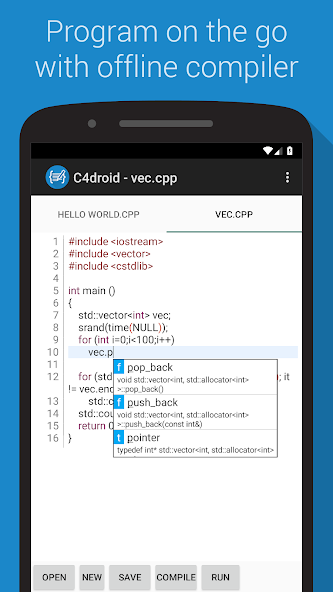I have a Device on which I installed Android Gingerbread 2.3.4 Here i want to run C executable file on android device
I am able to run android NDK application on this Device and it runs perfect.
But I want to run only one hello.c executable file on the Device.
/* #includes #defines ... */
int main(){
// Do something when this is executed
return 0;
}
Is there any way to compile this file with Android NDK tool chain so I can run this file's executable?
I found one thing here but this is not working for me. I am using Android NDK, Revision 7b for Linux.
There is no directory structure like this.

